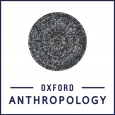About Us
The School of Anthropology & Museum Ethnography
The School of Anthropology and Museum Ethnography at The University of Oxford is the largest anthropology department in the UK. We tackle real world problems through our uniquely wide-ranging approach. We produce internationally recognised research and teach on challenging issues. At our heart is an ethos of openness and tolerance that guides our work.
In 2024 we were ranked number 1 in the QS World University Subject Rankings for Anthropology for the third consecutive year.
Our Mission
To be a world leader in Anthropological research and train students to be leaders in their fields.
Our Work
The research units that make up the school carry out cutting edge research that tackles real world problems. Together we take an interdisciplinary and wide-ranging approach to anthropological research and teaching.
Our Units
The Centre on Migration, Policy and Society (COMPAS)
The Centre for the Study of Social Cohesion (CSSC)
Institute of Human Sciences (IHS)
The Institute for Science, Innovation and Society (InSIS)
Pitt Rivers Museum
Our History
Anthropology has been taught at Oxford since 1883 when E.B. Tylor began lecturing on the subject at the Pitt Rivers Museum. In 1905 the Diploma in Anthropology was introduced, the first in the UK.
R.R. Marett became Reader in Social Anthropology in 1910 and in 1914 established a Department of Social Anthropology, Marett’s contribution to anthropology is marked every year with the prestigious Marett Memorial Lecture at Exeter College. You can listen to some of the recent Marett Memorial Lectures as episodes of the Oxford Anthropology Podcast.
The first Professor of Social Anthropology, A.R. Radcliffe-Brown, was appointed in 1937. His successors have been Sir Edward Evans-Pritchard (1946-70), Maurice Freedman (1970-75), Rodney Needham (1976-90), John Davis (1990-95), David Parkin (1996-2008), and David Gellner (2008-). In 2006 a second Chair in Social Anthropology was established, to which Harvey Whitehouse was appointed from October 2006.
Histories of Oxford Anthropology Project
A student-led re-evaluation of our history and what is relevant to it.
The Histories of Oxford Anthropology Project (HOAP) aims to better to represent the ‘hidden histories’ of the department. It is an opportunity to highlight ‘hidden figures’ within the department’s history and further reflect upon the relationship between anthropology at Oxford and the history of colonisation.
Histories of Oxford Anthropology Project











